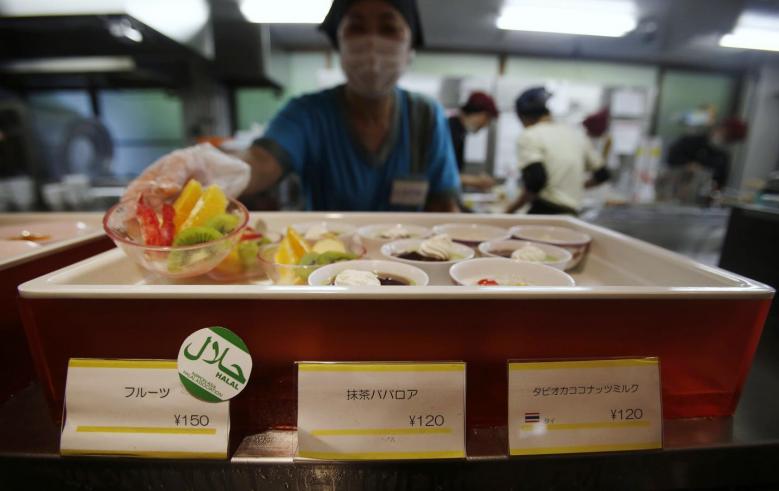
The Malaysian Institute of International Islamic Corporation (Ikiam) and the Malaysian Rubber Industry Smallholders Development Authority (Risda) say the logo will be designed and produced early next year.
‘Halal tourism’ emerges as businesses serve Muslim travelers
“The need for another halal logo is to distinguish products that were produced by Muslims against that of non-Muslims…[to help] Muslim entrepreneurs make forays into the halal markets locally and abroad,” Risda chair Zahidi Zainul Abidin said.
Muslims spend a trillion dollars buying Halal food. This startup wants to cater to them
Only 11% of Muslim-owned companies are currently registered as halal-compliant for the export market with Malaysia’s Trade and Industry ministry, Abidin added. “At the regional level, for example, a Muslim company with 60 branches across China has recently asked Risda to supply halal products to them. So, halal business opportunity abounds,” he said.
Although the Department of Islamic Development Malaysia already uses an official halal logo for products manufactured in the country, an Ikiam spokesperson explained that the new designation will ensure the products have been made in a halal environment and unlike other organisations, will not bend the rules. Catering to the 1.6 billion Muslims around the world, the global halal food market is worth $632bn; 16% of the global food industry, according to the United States Halal Association. The annual halal product market is valued at $2tn.
Spending on Halal food may rise 10.8% per year
Last year, Malaysia launched its first halal-compliant airline Rayani Air. The airline only served halal meals, did not stock alcohol, and had prayers recited aboard all flights before takeoff. In Malaysia, halal products like shampoos made locally or by small, niche companies are also popular. Halal cosmetics were estimated to make up 11% of a global halal market worth more than $1 trillion in 2015, according to Deloitte Tohmatsu Consulting. Market research firm TechNavio sees halal personal care products’ sales growing 14% per year until 2019, outpacing the broader market.
This article originally appeared on The Independent.
1731570357-0/elon-musk-(1)1731570357-0-405x300.webp)
-(1)1717678110-0/Kendrick-(1)-(1)1717678110-0-165x106.webp)





1732445375-0/Untitled-design-(9)1732445375-0-270x192.webp)


1732428810-0/Copy-of-Untitled-(3)1732428810-0-270x192.webp)






COMMENTS (6)
Comments are moderated and generally will be posted if they are on-topic and not abusive.
For more information, please see our Comments FAQ